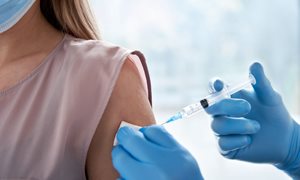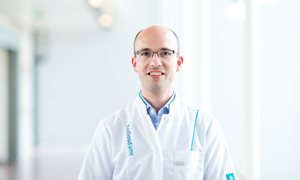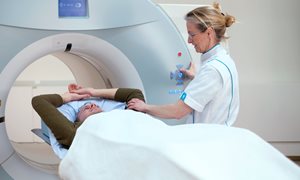
Of young female cancer patients, only half receives a referral to a gynecologist for a discussion about preserving her fertility, such as by freezing eggs. Researchers from the Radboud University Medical Center show that receiving this care leads to a better quality of life and less decision conflict and regret. Improvement is possible by providing a decision aid to patients, educating healthcare providers, more awareness and clear agreements on responsibilities.
Women of reproductive age with cancer can lose their fertility due to treatments such as chemotherapy, radiation or surgery of the reproductive organs. They would like to keep the possibility of having children in the future when they have survived their cancer. It is often possible to freeze eggs or to move the ovaries before cancer treatments start to preserve fertility. Unfortunately, not all women are informed about these options.
Less regret
‘In recent years it has improved, but still not all women are informed and only half of the women are referred to a gynecologist’, says PhD candidate Michelle van den Berg of the Radboudumc. 'In my dissertation I show that women who do receive this care have a higher quality of life after surviving cancer, experience less decisional conflict and have fewer regret. Even if they did not choose to preserve their fertility.'
What is the reason that not all young female cancer patients receive this care? Gynecologist Ina Beerendonk explains: 'It's a combination of factors. Sometimes, there is a lack of awareness and knowledge about this subject. It's also a matter of time, logistics and attitude. Or good information is not available in a hospital, or it is unclear who is responsible. The surgeon who performs the surgery? Or the oncologist who gives the chemotherapy?'
Decision aid
The Radboudumc research team provides recommendations for improving fertility care in young female cancer patients. For example, they developed an online decision aid, which supports women in their decision. This decision aid has been elaborated for 23 different types of cancer, because both the diseases and the associated treatments have different effects on fertility.
Not all hospitals use the decision aid yet. ‘Training of health care providers is important. Another challenge is its availability. There are many good decision aids in the Netherlands, but they often end up on the shelf after a project in which they have been developed and tested’, says Rosella Hermens, professor of Person-centered integrated oncological care. 'This is partly because hosting and maintenance costs money. Fortunately, the parties to the Framework Agreement are now working nationally on a plan for maintenance, management, payment and a finding place for good and reliable decision aids.'
Awareness
A second recommendation is the deployment of specialized nurses in the reproductive medicine department. They form a primary contact person during the fertility process for cancer patients, so that they see fewer different faces. Van den Berg: ‘This care is available in most IVF centers in the Netherlands. It would be of added value if all centers have one or two nurses who specialize in this topic and thus provide continuity of care.’
Finally, the researchers mention the importance of awareness and clearness about responsibilities. Beerendonk: 'We would like to see that fertility care in cancer patients receives more attention and is integrated in the care process. We can achieve this by, for example, including a reminder in electronic medical records. In addition, fertility must be a point on the agenda during multidisciplinary oncological meetings. Each hospital should also have clear agreements about whose responsibility it is to inform and to refer young female cancer patients. This topic deserves a permanent place in health care.'
More information
On 13 May 2022 at 12.30, Michelle van den Berg will defend her dissertation, entitled: Towards implementation of high-quality female oncofertility care (available online after 13 May). Supervisor: Prof. Dr. D.D.M. Braat. Co-supervisors: Dr. C.C.M. Beerendonk and Prof. Dr. R.P.M.G. Hermens. The defense can be followed via this livestream.
-
Want to know more about these subjects? Click on the buttons below for more news.
More information
Annemarie Eek

wetenschapsvoorlichter
Related news items
.jpg.aspx?width=500&height=333&ext=.jpg&type=BlockColumn1Zoom1)





